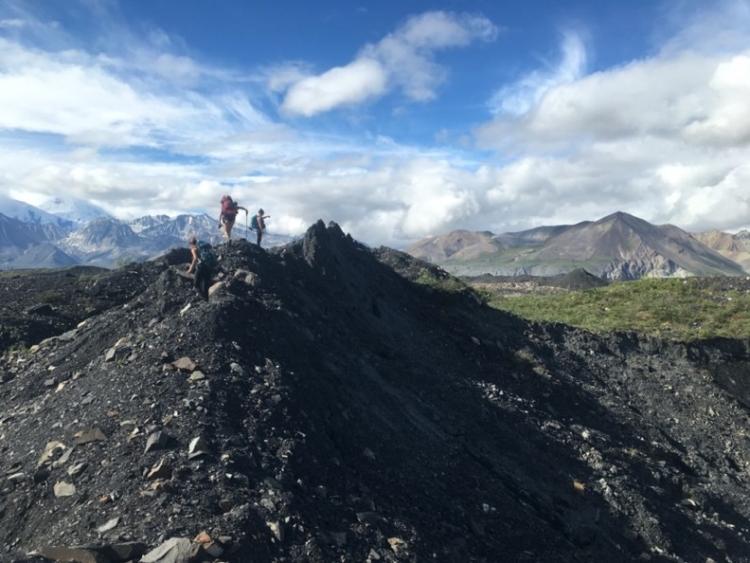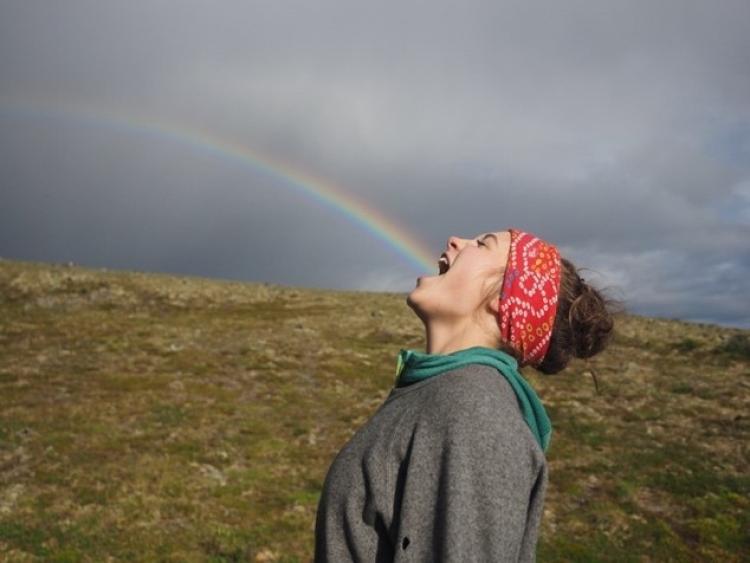On Support of Stewardship and Love for a Land
“Knowing that you love the earth changes you, activates you to defend and protect and celebrate. But when you feel that the earth loves you in return, that feeling transforms the relationship from a one-way street into a sacred bond.” – Robin Wall Kimmerer, Braiding Sweetgrass

My first summer there, I didn’t leave the Park boundary for four months. I sunbathed on riverbanks under midnight sun, I wrestled porcupines, I hiked through bruise-inducing hailstorms, hid from dry lightning, and missed by inches a head-on collision with a caribou while biking downhill. I drank every day from a lilting spring surrounded by dogwood flowers and fireweed, and actively worked to educate myself on the Park’s biology, ecology, and natural history.
When you spend a lot of time in one place, especially outdoors, you form a relationship with the land and with the beings who call it home. As interactions become more meaningful, the landscape becomes a part of you – Robin Wall Kimmerer writes in her novel Braiding Sweetgrass, an exploration of relationships between Indigenous wisdom and modern science, that in order to truly love, appreciate, and belong to a place “…we must learn to speak its language.”
To learn the language of a place, we must study, love, and respect the intricacies of its unique biome and conscientiously participate in its stewardship and preservation.
With every breath I’ve taken of crowberry and Labrador tea-scented tundra, with every windswept blossom I’ve identified from my battered Verna Pratt field guide, and with every path I’ve taken across rivers and glaciers and forests and scree, I’ve felt one step closer to speaking the language of Denali. All this, after only a humble few months of being there; the Koyukon, Tanana, and Dena’ina peoples have inhabited surrounding lands for thousands of years, and I can only imagine the power that comes with lifetimes and generations of conscious connection.

Certainly, this relationship to land is not confined to areas of dedicated Wilderness. Though it’s easy to feel detached from the place where you live, especially as a transient college student (since beginning school I have moved seven times between two countries, three states, and four cities), all it takes is a bit of conscientious outdoors-time to reignite a connection between you and the land around.
So- don’t take the natural world for granted! It exists for so much more than for our entertainment. Take a moment to understand the past and to listen to the land around you. Take a moment to consider the rock you’re climbing, or the river you’re running, or the soil that feeds the plant on your windowsill – what stories do 14er summits whisper? Which flowers, birds, and mushrooms are your neighbors? What can you learn from the non-human beings around you? How can you give back to the land that lends us life? If we each continue to ask ourselves these questions, I truly believe we will all be better for it.

Recommended sources for learning about Denali, natural history, and the history of colonialism:
Books
- Braiding Sweetgrass, Robin Wall Kimmerer
- Fool’s Crow, James Welch
- Rhythm of the Wild, Kim Heacox
- The Ground Beneath Us, Paul Bogard
Websites and Articles
- Stolen lands and living stories: A photographer reimagines reality https://native-land.ca/


